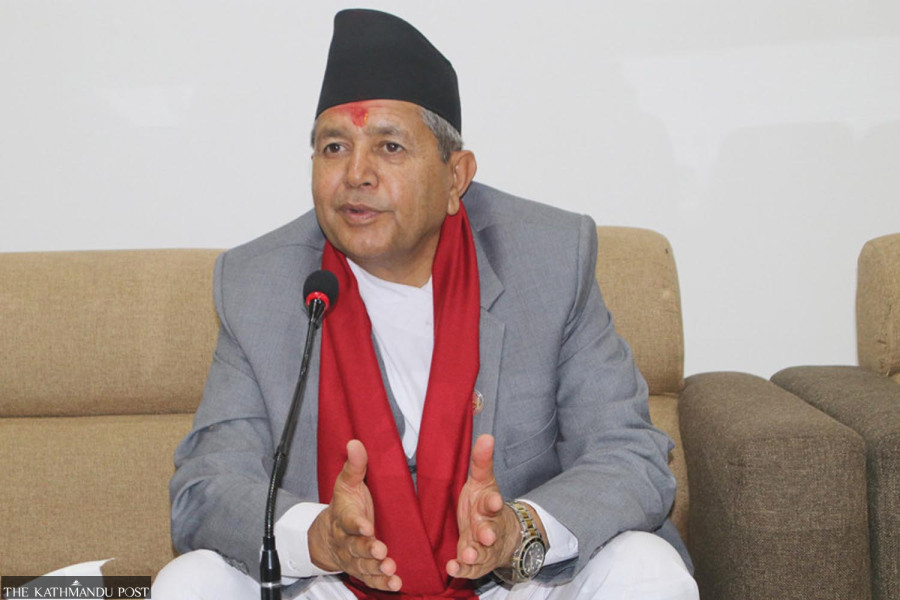Editorial
Unwarranted cynicism
At the start of his tenure, the new Speaker of the House deserves everyone’s benefit of doubt.
Perhaps few will disagree that Nepali politics is geared more towards securing the petty interests of individual leaders and their parties rather than to the common goal of strengthening democracy. The latest evidence of this is the ruling coalition’s attempts to keep the Speaker of the House from working against their interest. They apparently see Dev Raj Ghimire more as a CPN-UML representative rather than an administrative head of a democratically-elected House. Lawmakers representing the ruling coalition are now trying to curb the Speaker’s prerogatives, fearing he could derail their political ambitions.
With this aim, the parties have registered amendments to the House regulations draft, one of which says, “All the works of the Speaker must be decided by the Business Advisory Committee.” If they succeed in their plan, the ruling coalition will virtually dictate the Speaker’s functioning, as the committee is composed of chief whips, whips, and select lawmakers—and has a clear majority in favour of the ruling coalition. The ruling lawmakers say they want to stop the Speaker from making arbitrary decisions.
There is indeed a possibility of the Speaker favouring one political party over others given the highly partisan nature of Nepali politics today. But at the start of his tenure, he deserves everyone’s benefit of doubt. Otherwise, we cannot imagine the House functioning smoothly for the next six months let alone the next five years. The kind of mistrust we see today was evident during the term of the previous Parliament, too, when the UML obstructed the House for eight months while opposing Speaker Agni Sapkota's reluctance to disqualify the 14 lawmakers who left the party to form the CPN (Unified Socialist). This impeded the functioning of the House, turning it into a space for the enactment of petty political tussles rather than a place for healthy parliamentary exercise. Signs from the initial days of the new parliament aren’t much more encouraging.
There is no question that the Speaker must be impartial in his workings. As the presiding officer of the House, the Speaker also has administrative duties, including keeping the House in order, which he must fulfil without any bias. Again, he may not do so, in which case he will have to be held accountable. But the parliamentary parties must understand that the Speaker is no longer a representative of a particular party—an opposition party in this case. He has already renounced his party affiliation and has committed to strictly adhering to his constitutional duties. So it is the duty of the other parliamentarians to help him carry out those duties fairly and impartially.
It is not just a question of the Speaker and his prerogatives though. We witnessed similar debates around partisanship during the appointment of the country’s new President at the start of this month. The bigger question is: Do our politicians respect the sanctity of elected state offices? If they do not, we are afraid they cannot call themselves democrats. In the end, the precedent that political parties set will ultimately affect them all. Obstruct others today, and you will be obstructed tomorrow. Help others, and you are also likely to be helped when you are at the helm.




 13.12°C Kathmandu
13.12°C Kathmandu














